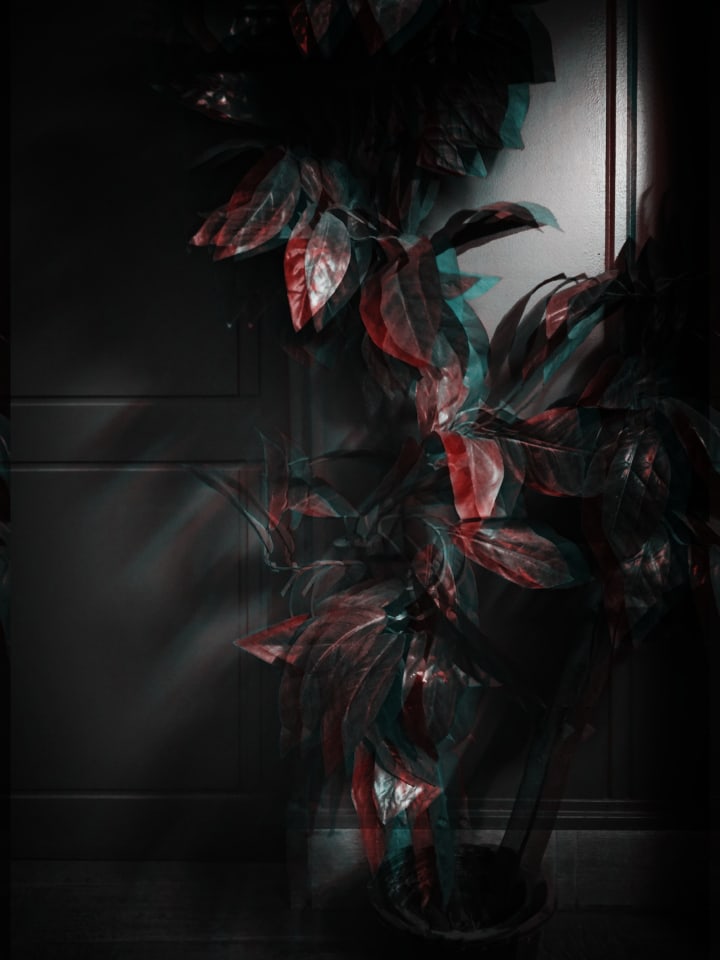Signs of a Psychotic Break That Everyone Should Know
The onset of psychosis is, by definition, disorienting. Therefore, it's important to know the signs of a psychotic break before it happens.

Three out of every 100 people will experience psychosis at some time in their lives. The onset of this psychosis is known as a psychotic break. Many people erroneously believe that this is, as the word "break" implies, some kind of sudden, instant event, in which an individual goes from being "normal" to suddenly suffering from a psychotic disorder. If this were the case, it would be much easier to recognize the signs of a psychotic break early—however, a psychotic break or the onset of a psychotic episode can happen slowly or gradually, possibly beginning with more mild symptoms and progressing into a full psychosis.
Regardless, it's important to remember that psychotic disorders manifest themselves differently in every person, and the best way to be aware of your, or someone else's, mental health is to fully understand the potential effects and symptoms that could indicate a psychotic break.
Insomnia

Photo by Yuris Alhumaydy on Unsplash
While the final signs of a psychotic break characteristically include hallucinations, delusions, or both, there are a number of early warning signs and symptoms that can indicate that such a break may be forthcoming. One such psychotic symptom is severe insomnia. While there are many causes of insomnia (as well as many natural remedies), those who know they suffer from a mental disorder like schizophrenia, bipolar disorder, or any other such mental illness should always be cognizant of their sleep patterns, as disruptions in sleep is often an early sign of a new psychotic episode or break.
Regardless of your history, you should seek a mental health professional if your sleep is significantly disturbed: lack of sleep can seriously aggravate the effects of a psychotic disorder, drug-induced psychosis, or any other form of break, even in otherwise well-managed patients.
Auditory Hallucinations
One of the most significant signs of a psychotic break is the onset of hallucinations. Some subtle symptoms may indicate that a psychotic episode is forthcoming, but hallucinations are often the first definite sign of the "break with reality" by which psychotic breaks are defined. However, this doesn't necessarily mean hearing voices that tell you to do things or think things—sometimes, these auditory hallucinations can be as subtle as a ringing in the ears.
Other auditory hallucinations might include brief, unintelligible whispers of a voice, soft sounds like music when there isn't any, or other auditory stimulation when there's none to be had. It doesn't always mean full-blown voices, and often auditory hallucinations will begin with less noticeable or concerning sounds that contain little or no content.
Visual Hallucinations

Photo by Mathieu Stern on Unsplash
When it comes to hallucinations, there is a scale of severity just like anything else, and these hallucinations may manifest themselves differently for different people. Nevertheless, hallucinations, along with delusions, are the leading signs and symptoms of the onset of a genuine psychotic episode. For visual hallucinations, this can mean many things.
Though some people may have full-blown hallucinations that appear entirely real to them, as another real person would, others may experience something like strange glimpses of things that aren't there, movements in the corner of an empty room, or simply distortions in the visual field. The nature of these hallucinations will often largely depend on the cause—that is, the mental illness or psychotic disorder ultimately responsible for all of these symptoms.
Hostility or Irritability
Another early warning sign of a psychotic break is hostility and irritability. In general, significant emotional and social changes should always be monitored and acknowledged, especially if you have a personal or family history of mental disorders. While irritability and hostility are not necessarily indicative of a psychotic break, they do very often precede them, and can help you recognize these changes early.
This can be difficult in younger adults and teenagers, as irritability and hostility are par for the course, but they are still useful tools, and understanding the way that a psychotic disorder may affect you can help you recognize an episode early and seek proper mental health care.
Lack of Focus or Comprehension

Photo by Khaled Saad on Unsplash
Another such early warning sign is difficulty focusing or understanding things. Often, this will be most readily visible in the slipping of grades or work performance, but can be subjectively noted as well, or recognized socially, as the early stages of psychosis may make it difficult to communicate properly, by inhibiting understanding or ability to respond. Tangible changes in work or school performance are often the easiest to spot, but are caused by individual changes in ability to focus and comprehend, and might thus also be recognized by the individual suffering the break.
Delusional Beliefs
While there are many signs of a psychotic break to watch out for, the most significant and useful for diagnosis are hallucinations and delusions. These often come at the heels of other emotional and mental changes, but signify a genuine break from reality. Delusional disorders like schizophrenia are often made out to be easy to spot, as some symptoms can make it impossible to behave as expected in the world. However, many people who suffer from delusional disorders often seem otherwise normal—their delusions might range from lofty beliefs about their own power or prestige, to more subtle delusions about love, their own history or family, or their job.
Impulsivity

Photo by Eduardo Flores on Unsplash
The sudden onset of reckless behavior is something that should always be checked and discussed with a mental health professional. Not only is it dangerous in its own right, often manifesting as risky behaviors such as speeding, promiscuity, picking fights, etc., but it also may be one of the early signs of a psychotic break. These behaviors are especially common at the onset of an episode of a mood disorder such as bipolar disorder, but may be a symptom of any range of mental health issues, with varying causes. Regardless, recklessness and impulsivity can be dangerous, especially in conjunction with other symptoms of psychosis, and so should be treated seriously.
Social Seclusion
An individual experiencing psychosis will often begin to pull away from family or friends. This may be a result of early symptoms, like irritability and feelings of hostility, but these as well are perhaps more often the result of the beginnings of uneasiness or mistrust that psychosis can cause. This may range on a scale of simply doubting one's own emotions or the emotions of their loved ones, to full-blown paranoia and fear. But whatever the cause: drug-induced psychosis, mental disorders, etc, sudden social changes should always be monitored and considered as potentially indicative of a decline in one's mental health.
Depression

Photo by Anh Nguyen on Unsplash
Signs of depression may be just that: signs of depression. But a common myth about psychosis is that is it just one illness. However, depression may also occur at the onset of a psychotic break. Particularly for individuals with a history of mental disorders, personally or genetically, such changes should be monitored. Symptoms of such indicative depression might include suicidal ideation, self-harm, social seclusion, changes in sleeping patterns, a sudden decline in hygiene, and changes in eating habits. Regardless of the cause, such symptoms should be immediately discussed with a mental health professional, whether their ultimate cause is clinical depression, a psychotic disorder, trauma, injury, or any other cause of psychosis.
Emotional Disturbances
Impulsivity, social seclusion, depression—mood and mood changes are one of the most significant early signs of a psychotic break. Emotional disturbances might include sudden, inappropriate emotions, or the polar opposite: feelings of apathy, lack of response to normally stimulating situations. These emotional disturbances may be mediated by any range of mental changes, but are often an early sign of psychosis. Such symptoms might be recognized by the individual, especially if they have a history of mental health problems, but can also be recognized and watched for by others, such as friend, family members, etc.
About the Creator
Nicola P. Young
Lover of Books, Saxophone, Blogs, and Dogs. Not necessarily in that order. Book blogger at heartofinkandpaper.com.






Comments
There are no comments for this story
Be the first to respond and start the conversation.